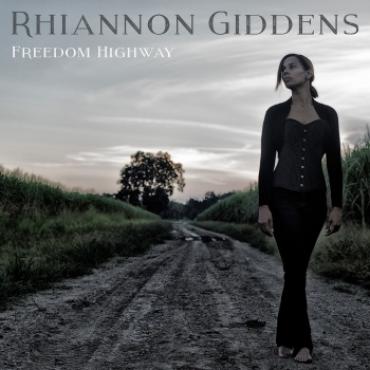Rhiannon Giddens’ Spectacular Civil Rights Statement

Rhiannon Giddens set a high bar early on. Her Grammy Award-winning debut, Tomorrow Is My Turn, provided an easy segue way from her stint in the Carolina Chocolate Drops, bringing a flood of accolades and a promise as prophetic as its title. A singer, fiddler and banjo player, she rapidly rose to prominence on the strength of that initial effort and subsequent participation in the collective combo known as The New Basement Tapes, whose membership also included Elvis Costello, Jim James, Marcus Mumford and Taylor Goldsmith of Dawes. Factory Girl, a five song EP released for Record Store Day, might not have expanded her parameters, but it did further illuminate her impressive dexterity as both an artist and interpreter within traditional trappings.
Giddens’ sophomore set finds a slight change of course, though nothing so distinctly different as to upend her sound. Whereas before, when she relied mainly on interpretations of age-old standards, Freedom Highway features mostly original songs penned by Giddens herself, either solo or in collaboration with others. All find a comfortable fit alongside covers by Mississippi John Hurt, Richard Farina and the Staples Singers’ Pops Staples. There’s no disparity whatsoever; as the name implies, the material finds a common bond in themes that resonate throughout the racial strife that’s engulfed America and that’s still prevalent today. Giddens herself describes them as “songs based on the slave narratives from the 1800s, African American experiences of the last century, the Civil Rights movement of the 1960s and headlines from streets of Ferguson and Baltimore today.”
That sense of struggle rises to the fore throughout, particularly in such songs as “Julie,” Farina’s “Birmingham Sunday,” Staples’ “Freedom Highway” and “Better Get It Right the First Time.” Cast in simple, sparse arrangements and low cast musical settings that befit the album’s archival feel, the majority of the material coasts by on a pluck, a stomp and Giddens’ soulful sway. There are instances where she breaks the mold — a hint of ragtime here, a jazzy flourish there and plenty of gospel all around. Yet, all those nuances fit within the rustic realms her music naturally embraces, making this come across like an archival effort of authentic order. And with Giddens’ expressive sensibility coming to the fore, the lessons learned on Freedom Highway are indelibly etched as well.




